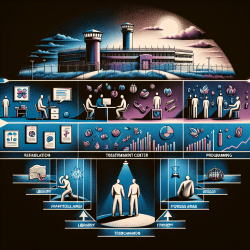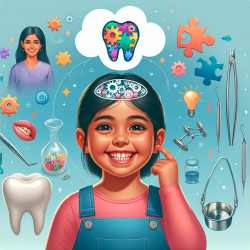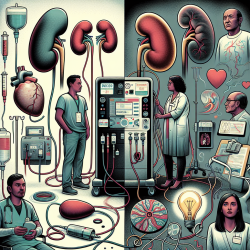Introduction
In the realm of substance abuse treatment, facilities that offer specialized programming for criminal justice populations, including DUI offenders, play a crucial role in addressing the unique needs of these clients. The research article titled "Characteristics of facilities with specialized programming for drinking drivers and for other criminal justice involved clients: analysis of a national database" sheds light on the characteristics of these facilities and offers insights that practitioners can use to enhance their skills and improve outcomes for their clients.
Understanding the Research
The study analyzed data from the 2004 US National Survey of Substance Abuse Treatment Facilities, revealing that almost half of the facilities offered specialized programming for DUI or other criminal justice clients. The research identified distinct characteristics associated with facilities offering these programs, such as ownership status, funding sources, and location. For instance, DUI specialized programming was more prevalent in privately owned, for-profit facilities located in rural areas, while other criminal justice specialized programming was more common in publicly funded, urban facilities.
Implications for Practitioners
Practitioners can leverage these findings to improve their service delivery and outcomes. Here are some key takeaways:
- Diversify Funding Sources: Facilities can enhance their sustainability by diversifying their funding streams. Understanding the characteristics that attract different types of funding can guide facilities in developing strategies to secure financial support.
- Tailor Programming to Client Needs: Specialized programming should be designed to meet the specific needs of the target population. Facilities should consider the unique challenges faced by DUI and other criminal justice clients and tailor their programs accordingly.
- Utilize Data for Decision-Making: Data-driven decisions can enhance the effectiveness of treatment programs. Facilities should regularly analyze data to assess the efficacy of their programs and make informed adjustments as needed.
Encouraging Further Research
While the study provides valuable insights, it also highlights the need for further research to understand the motivations behind the observed associations and to explore the quality and efficacy of specialized programming. Practitioners are encouraged to engage in research initiatives that examine these aspects in greater detail, contributing to the development of evidence-based practices that can improve outcomes for criminal justice populations.
Conclusion
Specialized programming for DUI and other criminal justice clients is vital for addressing the complex needs of these populations. By understanding the characteristics that influence the success of these programs, practitioners can enhance their skills and contribute to better outcomes for their clients. As the demand for specialized services continues to grow, it is imperative that facilities and policymakers work together to ensure the efficient use of resources and the implementation of effective treatment strategies.
To read the original research paper, please follow this link: Characteristics of facilities with specialized programming for drinking drivers and for other criminal justice involved clients: analysis of a national database.










